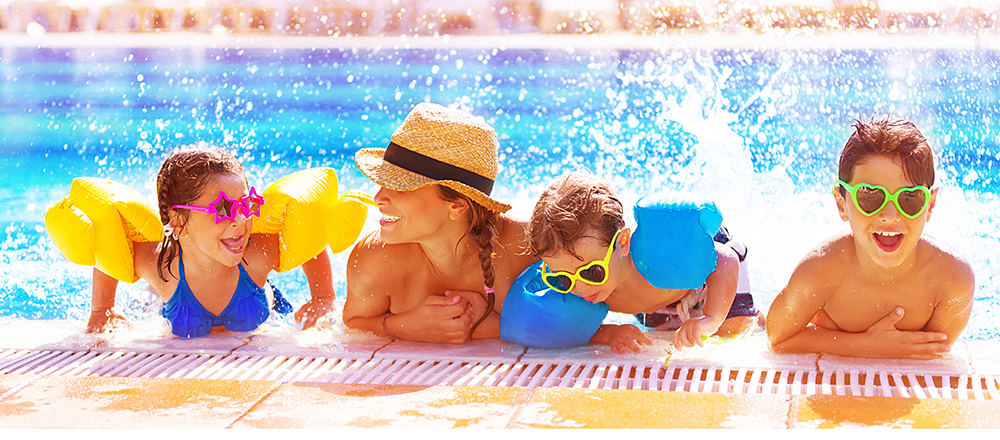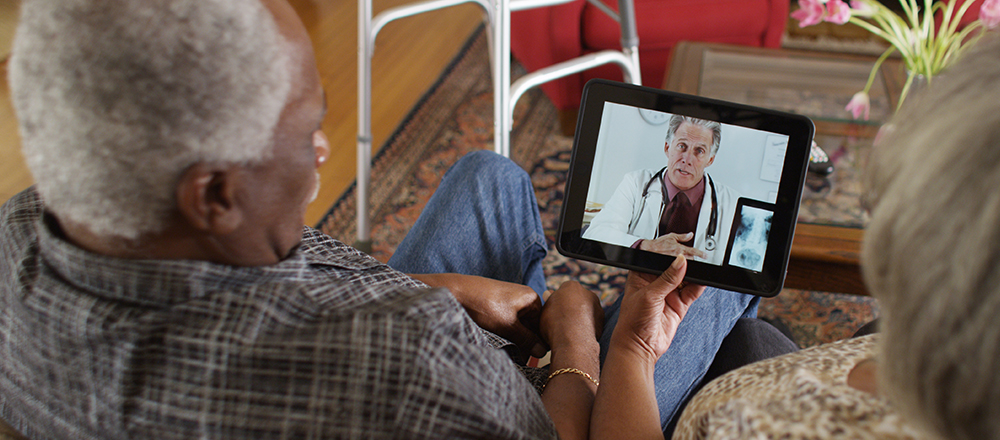Play It Safe This Summer
June 6, 2018By: Jodi Rawson
Categories: Live Healthy, Pediatrics, Prevention

Whether they’re splashing in a pool, sliding into home base or enjoying ice cream with friends, kids have a blast soaking up summer. It’s all fun and games until someone gets hurt. Reduce the chance of injuries with these common sense safety tips, offered by three Meritas Health healthcare professionals.
Be Prepared
Cuts, scrapes and other injuries don’t just happen at home. Toss a few essential items into a backpack, and you’ll have them when you need them. Include alcohol wipes for cleaning hands, saline wound spray for cleaning cuts, and adhesive bandages.
Beat the Heat
Kids play their hardest during the summer, and their bodies can’t regulate temperature as easily as adults. Keeping them hydrated is key. “By the time kids say they’re thirsty, they may already be dehydrated,” said Ashley E. Gemmell, DO, a family medicine physician with Meritas Health Briarcliff.
“Having water readily available encourages them to drink.” Send a water bottle along with kids on the go, and encourage water breaks every 20 minutes during activities.
Watch for signs of heat exhaustion, which include clammy skin, nausea, muscle cramps or weakness. “If you see signs, take a time out, give more water and loosen your child’s clothing,” added Jennifer McDaniel, APRN, a nurse practitioner with Meritas Health Briarcliff.
“If your child has trouble breathing, a rapid pulse or a severe headache, they may be experiencing heatstroke, and you should seek emergency medical attention immediately.”
Block the Rays
There are several ways to protect kids from sunburns. “If you can avoid being outside when the sun is the strongest, between 10 a.m. and 2 p.m., that’s ideal,” Dr. Gemmell said. When that’s not an option, apply sunscreen every two hours. Choose sunscreen with an SPF of 30 or higher for children over 6 months.
If your child gets sunburned despite your best efforts to cover them in sunscreen, don’t worry. Apply a cool, wet washcloth to the area, and use a moisturizer with aloe. If the burn hurts, ibuprofen may give your child some relief. Watch for blisters, which indicate a more severe burn that may need medical attention.
Don’t Get “Ticked” Off
Kids are natural explorers. With tick season already in full swing, take a few preventive steps. “Other than staying indoors, tick repellents are the best way to protect your family from ticks,” Dr. Gemmell said. “Look for products with DEET as the main ingredient, and get something in the 10%-30% range, which is what the Academy of Pediatrics recommends.” DEET is Environmental Protection Agency-approved for use on children and adults. Make sure to read and follow the directions.
You should also:
- Apply permethrin (EPA approved) to clothes before heading outdoors
- Throw clothes worn outdoors into the dryer, where the heat will kill any lingering ticks
- Take a shower using a washcloth and soap to dislodge any ticks
- Use tick collars with pets that play outdoors
If you do find a tick, remove it as soon as possible. The best method is to use a pair of tweezers. Resist the urge to pull it out quickly. Grasp close to the skin, and pull the tick straight out, working slowly. When it’s removed, clean the area with alcohol and then wash it with soap and water.
There’s no need to check in with your doctor, unless you notice symptoms, which can include body aches, chills, fever, loss of appetite and rash. Symptoms can appear days, sometimes weeks, after the bite.
Splash Safely
Whether enjoying a community pool, backyard oasis or lake, it’s important to be alert near water. Drowning is the second leading cause of unintentional death for children ages 1-14. And for every child who dies from drowning, five more are treated in Emergency Rooms for nonfatal injuries.
“Please, put down your phone,” urged Christine Green, MD, with Meritas Health Pediatrics. “Parents should minimize distractions as much as possible when near water with their kids. Things can go from fun to scary in an instant.” Not only can drowning happen quickly, it can also happen quietly, so only listening for trouble isn’t enough.
If you own a pool, make sure it is surrounded by a four-sided fence with self-closing and self-latching gates. Pool alarms add another level of safety. When kids are boating, swimming or rafting at the beach, insist they wear life jackets – even if they know how to swim. Make sure the life jackets fit properly and are Coast Guard-approved.
Dr. Greene also recommended families take a CPR class. “It never hurts to be prepared for a worst-case scenario. Should something ever happen, you’ll know how to respond.”
Summer is about staying cool and having fun, two things that are easier to do when you also play it safe.






